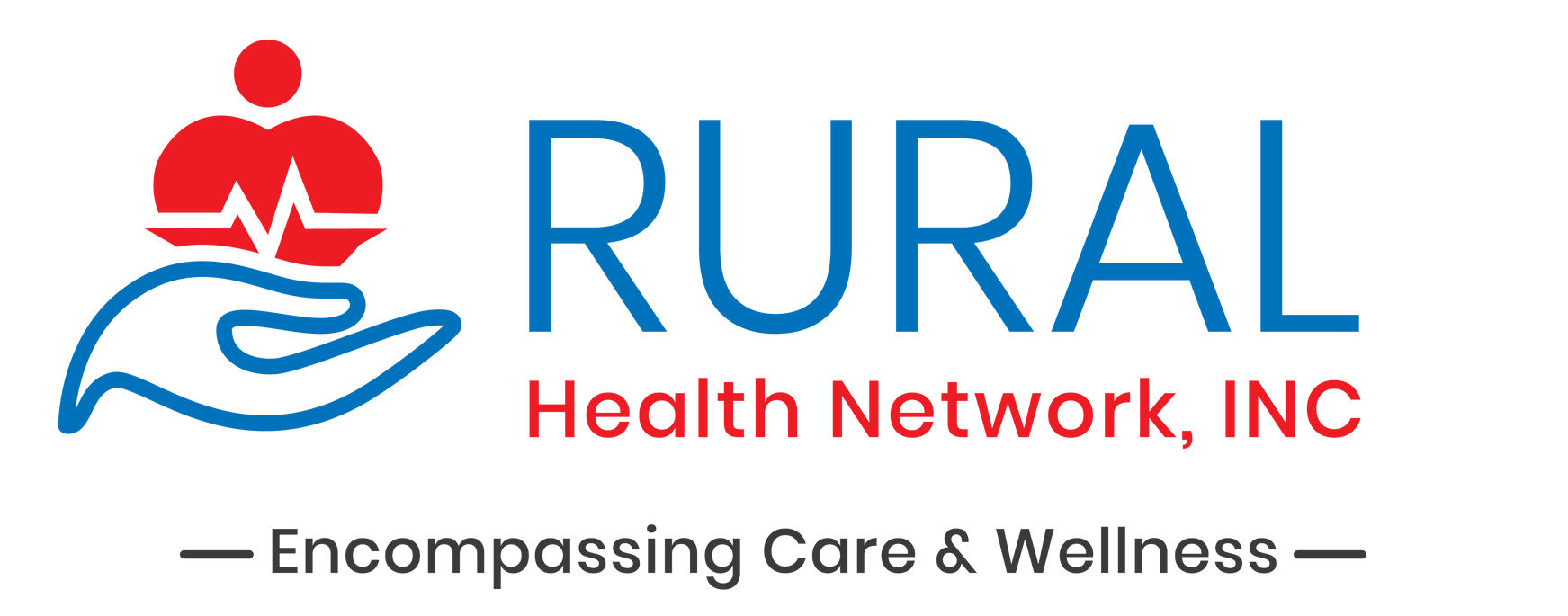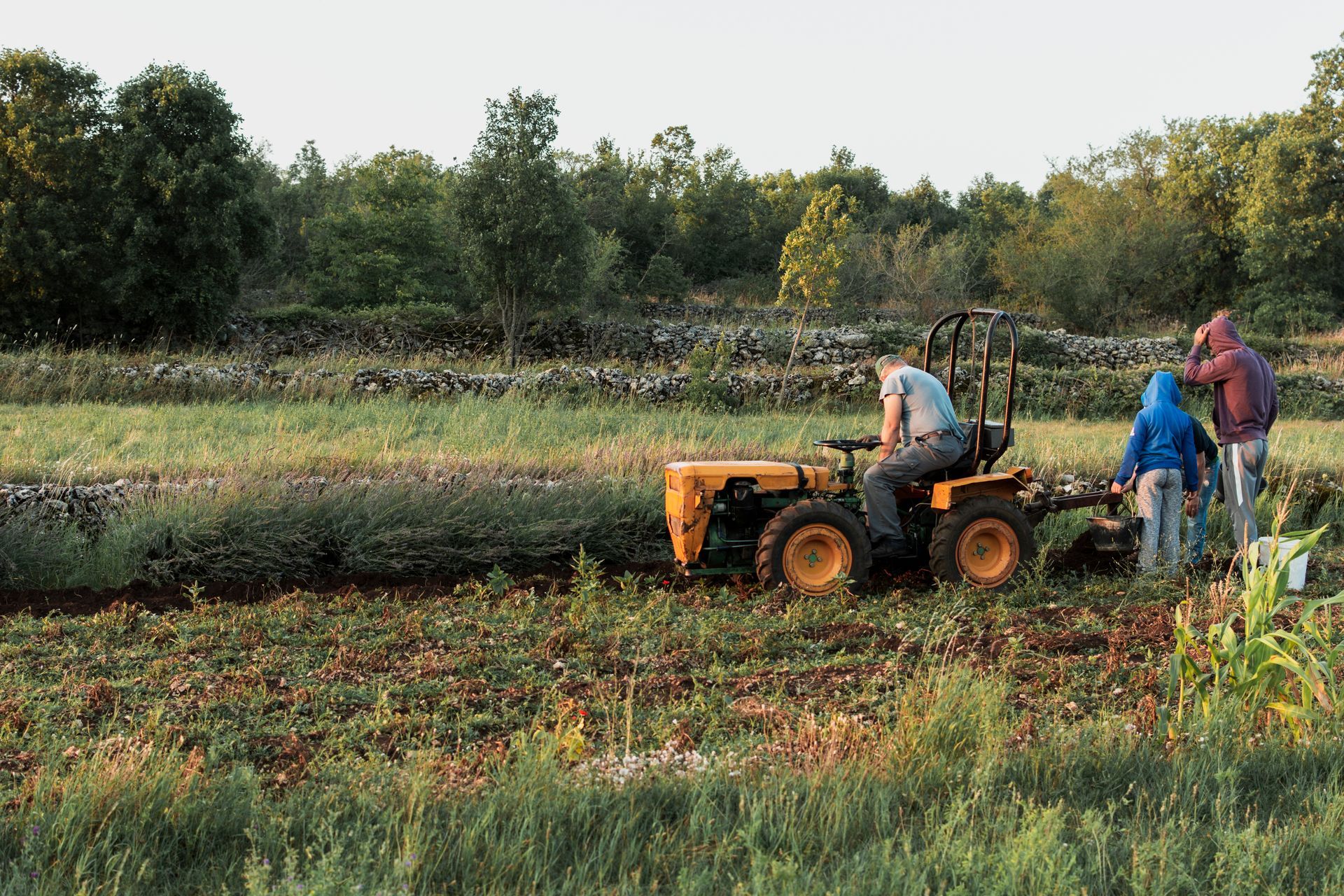Healthy Harvest: Wellness Tips for Farmers

Farmers work hard every day. They wake up early, stay late in the fields, and care for crops and animals all year round. Their hard work makes sure we all have food to eat. While taking such good care of their farms, it's easy for farmers to neglect their most valuable asset—themselves.
It's not just about planting seeds or feeding animals. It's also about dealing with heavy work, changing weather, and financial challenges. Because of all this hard work and worry, farmers might not immediately notice when their health worsens.
Like a farm needs healthy soil and animals to produce good food, farmers need to be healthy to care for their farms.
This blog shares tips for maintaining physical and mental wellness, ensuring that farmers continue to thrive alongside their crops.
Top Health and Safety Risks of Farmers
Farmers play a vital role in maintaining food security, but their hard work comes with significant health and safety risks. From the physical demands of fieldwork to the mental strain of managing a farming business, below are the health and safety risks that farmers face.
1. Exhaustion
Plowing, harvesting, caring for animals, and other forms of farm work are physically demanding and exhausting. Working intensely without proper rest results in weaker muscles, slower reactions, and a higher risk of injuries.
2. Musculoskeletal Injuries
Frequently lifting heavy objects and repetitive motions may cause strains and sprains, particularly in the back, shoulders, and knees. Prolonged use of vibrating machinery leads to hand-arm vibration syndrome. This condition results in numbness, pain, and decreased hand function.
3. Skin Diseases
Prolonged exposure to UV radiation increases the risk of skin cancer, especially without protective measures like sunscreen and hats. Farmers are also at risk of allergic reactions or skin irritation due to exposure to plants, fertilizers, pesticides, and other chemicals.
4. Respiratory Diseases
Inhaling dust from crops, animal feed, and other organic materials often leads to respiratory issues like farmers’ lung, asthma, and allergic rhinitis. Pesticides and other airborne chemicals damage lung tissue, leading to chronic respiratory conditions.
5. Hearing Loss
Farmers risk permanent hearing loss due to continuous exposure to noise from machinery, livestock, and other farm operations. Agriculture ranks among the top three occupations associated with hearing loss.
6. Chemical Exposure
Improper handling or accidental ingestion of pesticides can lead to acute poisoning, with symptoms ranging from nausea and headaches to severe neurological damage and death. Chronic exposure to chemicals also increases the risk of severe conditions like various cancers, neurological disorders, and reproductive issues.
7. Stress and Mental Health Issues
Rising production costs, labor shortages, and unpredictable weather patterns have significantly increased farmers' stress in recent years. Farmers often get burned out because of the nonstop work and financial pressures. The solitary nature of farming, especially in remote areas, also contributes to social isolation, loneliness, and depression.
8. Accidents and Fatalities
Improper handling of tractors, combine harvesters, and other machinery can cause serious injuries or death. Uneven terrain, slippery surfaces, and working at heights often cause falls, leading to injuries that range from minor bruises to fatal accidents. Farm animals, sometimes unpredictable, may kick, bite, or trample their handlers.
9. Zoonotic Diseases
Farmers risk contracting diseases directly from animals, including brucellosis, rabies, and avian influenza. Indirect transmission of diseases may occur through contaminated water, soil, or equipment, posing additional health risks.
10. Heat Stress
Working in hot conditions without adequate hydration or cooling puts farmers at risk of heat exhaustion, characterized by heavy sweating, weakness, and dizziness. Worse, they can get heatstroke, a condition in which the body's temperature regulation fails. This leads to possible unconsciousness, organ failure, or death (if not promptly treated).
11. Dehydration
Dehydration can quickly set in, especially in hot weather or during strenuous activities. Dehydration symptoms include dry mouth, thirst, fatigue, and dizziness, all of which can impair physical performance and lead to heat-related illnesses.
Wellness and Farm Safety Tips for Farmers
As farmers immerse themselves in the daily tasks of cultivating the land and caring for livestock, it's easy to overlook the importance of their well-being. However, prioritizing health and safety is beneficial and essential for sustaining a productive and fulfilling farming life. Here are some health and farming safety tips you should adopt:
1. Adopt Ergonomic Practices
Injury prevention is crucial for farming safety. Adopt proper lifting techniques and use ergonomically designed tools. Adjust workstations to fit your body to avoid awkward postures, and rotate tasks to prevent overuse of specific muscle groups. Take regular breaks to avoid strains and injuries.
2. Protect Your Skin
Farmers should apply broad-spectrum sunscreen to protect their skin. For prolonged outdoor activities, The Skin Cancer Foundation advises using a broad-spectrum, water-resistant sunscreen with at least 30 SPF. Apply one ounce of sunscreen thirty minutes before heading outdoors and reapply every two hours or right after sweating.
Taking care of your skin also means wearing protective clothing such as long-sleeved shirts, pants, and wide-brimmed hats. Familiarize yourself with proper chemical handling practices and use safety gloves and other protective gear to minimize the risk of burns or skin irritations.
3. Wear Ear Protection
Hearing loss from noise exposure is gradual and irreversible, making ear protection essential. Wear high-quality earplugs or earmuffs to protect your ears from damage. You must also have regular hearing assessments to detect early signs of hearing loss, enabling timely intervention.
4. Eat a Nutritious Diet
Due to the demanding nature of farm life, proper nutrition is vital for energy, recovery, and overall health. A diet rich in lean proteins, fruits, vegetables, and whole grains provides the necessary nutrients to maintain stamina and muscle repair. It's also important to plan meals and snacks that are convenient to consume during busy workdays to sustain energy levels throughout the day.
5. Drink Ample Water
One of the most crucial farming tips is to stay hydrated, especially during peak summer months. Consume at least 8–10 glasses of water daily and more if you spend long hours outdoors. Keep a water bottle handy and take regular water breaks.
6. Undergo Wellness Exams
Regular health check-ups help catch medical issues before they become serious, offering a chance for early treatment and management. Make sure to include screenings for skin cancer, respiratory health, and other occupational hazards specific to farming. Additionally, staying up to date with vaccinations and tetanus shots is crucial for farmers, given their exposure to soil and potential injuries.
7. Recognize Stress Signals
Look out for signs of stress to address them before they escalate into depression. Physical symptoms such as tension headaches, fatigue, muscle aches, and emotional symptoms like irritability, anxiety, and difficulty concentrating are indicators of stress.
8. Practice Stress Reduction Techniques
Managing stress is vital for mental and physical health. Techniques such as yoga, meditation, and deep breathing exercises lower stress levels. Allocate time for hobbies and interests outside of farming to provide a much-needed break and refreshment for the mind. Designate a peaceful space on your farm for relaxation.
9. Seek Support
Unaddressed mental health issues can lead to long-term depression, anxiety, or even suicide. There's no shame in seeking professional help for mental health struggles. Resources like counseling services, therapy, medication, support groups, and hotlines are invaluable for overcoming the toughest of times.
10. Build a Supportive Community
A strong network of fellow farmers and agricultural professionals offers emotional and practical support. Engage with local farming groups, attend workshops, and join online forums to connect with your community. Family and friends also play a critical role in providing emotional support and understanding.
11. Leverage Local Resources
Many local organizations offer resources for farmers, from technical farming advice to mental health support. Reach out to cooperative extensions, farming associations, and community health initiatives for guidance and support.
Comprehensive, Patient-Centered Healthcare at Newman, California
Your health is your most valuable asset. It's always better to prevent health problems before they start, but don't hesitate to ask healthcare professionals for help if you run into issues. If you’re looking for compassionate and comprehensive healthcare services in Newman, California, look no further than Rural Health Network, Inc. For more information, message us online or call (209) 862-3604. Here's to your health and a successful harvest!










